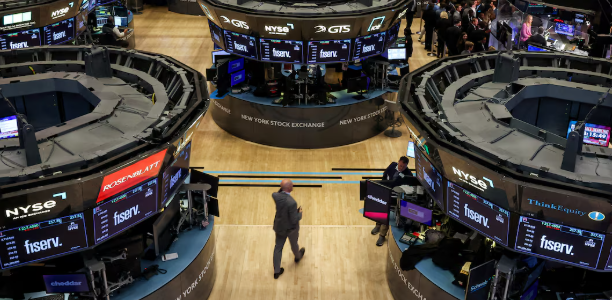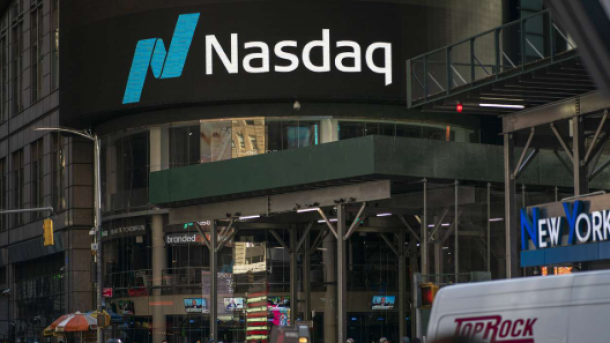The Nasdaq Composite Bear Market is becoming more apparent as a significant stock sell-off, triggered by global tariffs, intensifies. On Friday morning, the Nasdaq saw a sharp drop of nearly 4%, pushing it more than 20% below its peak in December, officially marking a troubling decline. This was not an isolated event; other major indexes, like the S&P 500 and Dow, also followed suit, slipping by about 4% and 3.5%, respectively.
For the Nasdaq to officially enter a bear market, the index needs to close below 16,139.11. As of the most recent data, it was hovering around 15,876 after bouncing back from a low just below 15,600.

Nasdaq Composite Bear Market Impact on Tech Stocks
This severe downturn follows a day of dramatic losses, which saw the Nasdaq suffer its worst performance since March 2020. The initial cause of the sell-off came after President Donald Trump announced sweeping tariffs, which many experts warn could potentially push the U.S. economy into a recession while fueling inflation.
Things took a turn for the worse when China retaliated with its own set of tariffs on all U.S. goods, matching the U.S. tariffs on Chinese imports. This has raised concerns that these tit-for-tat measures could escalate into a full-blown global trade war, potentially leading to even higher tariffs and further market volatility.
The majority of the Nasdaq’s over 3,000 stocks were in the red, with the heaviest losses seen in large-cap tech stocks. For instance, Apple’s shares dropped more than 4% after a nearly 10% plunge the previous day—its worst performance since March 2020. Additionally, major AI chipmakers like Nvidia and Broadcom saw drops of more than 7%, and electric vehicle manufacturer Tesla’s stock plummeted nearly 10%.
How the Nasdaq Composite Bear Market Affects Investors
With the Nasdaq Composite Bear Market in full swing, investors are becoming increasingly cautious. The combination of rising tariffs, a potential global trade war, and declining tech stock values has heightened fears of a recession. As the market continues to experience these wild fluctuations, many are questioning how deep the bear market will go and what it means for their portfolios in the coming months.
Source: www.investopedia.com



